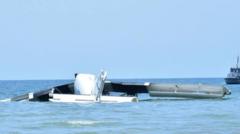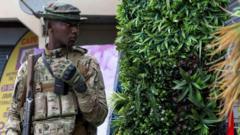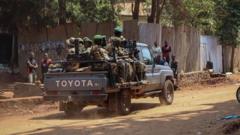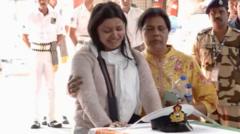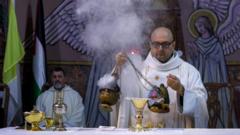The life of leisure in Rwanda sharply contrasts with the devastation in the Democratic Republic of Congo, epitomized by the violence stemming from the M23 rebel group's takeover of Goma.
# Diverging Realities: Lake Kivu Stands as a Symbol of Conflict Between Rwanda and DRC

# Diverging Realities: Lake Kivu Stands as a Symbol of Conflict Between Rwanda and DRC
A look at the stark contrasts along Lake Kivu, reflecting the diverse experiences of life in Rwanda and the Democratic Republic of Congo amidst ongoing conflict.
As tourists and residents enjoy the tranquil shores of Lake Kivu in Rwanda, just a stone's throw away in the Democratic Republic of Congo, the scene tells a contrasting story marked by bloodshed and chaos. The lake, a natural boundary between the two nations, has become a poignant reminder of the conflict that grips the region. At least 3,000 lives were lost during the recent M23-led offensive in Goma, pushing local residents to flee to the relative calm of Rwanda’s Gisenyi.
The stark division is palpable: Gisenyi, with its vibrant beachfront cafes and families basking in the sun; Goma, mired in sorrow as the echoes of sirens and the sight of bodies washing up on the shore remind its citizens of their harsh reality. Exauce Shalako, a survivor of the Goma conflict, describes his visit to the Rwandan side: “It is peaceful here, unlike over there. We need to unwind, to have a change of scene.”
Despite this apparent tranquility, the environment in Rwanda is deceiving. There are claims, supported by international experts, that Rwanda is supporting the M23 rebels, a group believed to be orchestrating violence to exert influence in eastern Congo. Rwandan officials, however, firmly reject allegations of involvement, asserting that they are committed to a peaceful resolution.
As the two shores of Lake Kivu illustrate, the lives of people living mere miles apart can be influenced by significantly different circumstances. Residents of Gisenyi celebrate life while those across the border endure suffering—two worlds embodied by the same body of water, underscoring the complex interplay of conflict, power, and survival in the Great Lakes region.


